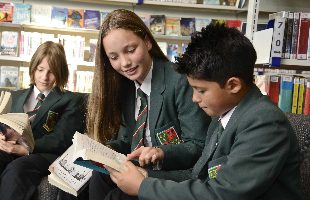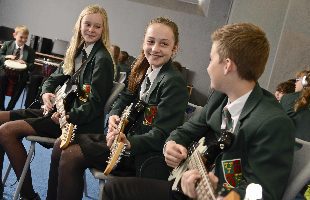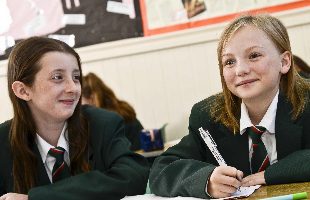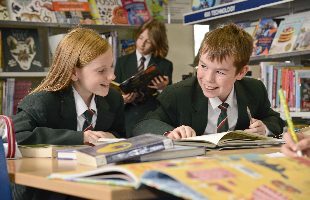Geography
“Geography explains the past, illuminates the present and prepares us for the future. What could be more important than that?”
Michael Palin 2007
Year 7
Geography is delivered in all Primary schools, but often as part of a project and pupils rarely come to Secondary school with any understanding of the subject past it involving maps! At KKS we aim to embed these skills and develop a sense of place in the first term with local based geography. The following units allow pupils to gain an understanding of the world and their place within it.
| Autumn Term Our local Geography | Spring Half Term 3 Rivers | Spring Half Term 4 Globalisation | Summer Term 5 Tropical Rainforests | Summer Term 6 Tourism | |
|---|---|---|---|---|---|
| Curriculum Knowledge | Development of Mapskills: grid references, scale, contours, direction, symbols Investigation of Settlement – developments over time, reasons for Kendal, structure, reasons for location | River processes River landforms – waterfalls and meanders River Management – Hard and Soft | Using sporting links to investigate the world in terms of distribution and wealth. How do we measure development? Sweatshops and Fairtrade | Where are TRF? What is the climate? What is the structure? How are organisms adapted for TRF? What causes deforestation and what are the impacts? | What is tourism? What are physical and human attractions? What are the impacts of tourism? |
| Subject Skills | Throughout our studies we will develop the following skills: Mapskills and interpretation Description and explanation Justifying opinion and constructing a balanced argument A continuing introduction of key terms and reminders of them. | ||||
| How can you help your child engage with the content? | Offer your child the chance to map read, using a phone or map book whilst travelling or walking.Whilst in Kendal look at historical Kendal street information and discuss how Kendal has changed over time.Geocaching – lots of fun for the competitive! | When walking identify river landforms and discuss how they form. | Look at items around the home, where do they come from? Does anything surprise you? | Watch Nature documentaries on BBC iPlayer | Watch The Lakes with Simon Reeve on iPlayer |
| Curriculum Opportunities | Fieldwork walk during a lesson to complete land use survey and investigate Kendal’s past. | Field Sketching the River Kent | Investigate 10 items in your home. How are you linked to the rest of the world? Does anything surprise you? | Take on a debate and make sure your voice is heard! | |
| Carreer links | Town plannerCartographer | Hydrologist | Sports development officer | Forester | Travel and tourism agent |
Year 8
Our Y8 curriculum building on skills and knowledge taught in Y7. The Coasts topic for example echoes the physical processes that pupils learn in Y7 Rivers. The geographical skills of enquiry, appreciation of scale and being able to construct a balance argument are threaded through our lessons. The assessments come in traditional tests, but with the beginnings of extended responses that pupils can expect at GCSE.
| Autumn Term 1 Coasts | Autumn Term 2 Antarctica | Spring Half Term 3 Earthquakes and Volcanoes | Spring Half Term 4 Food and farming | Summer Term Africa and Europe | |
|---|---|---|---|---|---|
| Curriculum content | What are coastal processes? How do erosion and deposition create coastal landforms? How can coasts be managed using hard and soft engineering strategies? | Where is Antarctica? What is the climate? How do animals survive there? Who owes Antarctica? Should development be allowed? | What is the structure of Earth? What happens at plate boundaries? How do volcanoes and earthquakes happen? What are the causes, effects and responses to a tectonic event? | What are the difference types of farming found in the UK? Where does a range of farming take place? How has farming changed? What is organic food and does it make a difference? | What is the physical geography of Africa? Why is Africa so special? Do we have preconceptions about ‘Africa’? How can we measure wealth? A comparison between areas allowing variety to be investigated and an broader understanding gained. |
| Key Skills | Throughout our studies we will develop the following skills: Mapskills and interpretation Description and explanation Justifying opinion and constructing a balanced argument A continuing introduction of key terms and reminders of them and link back to Year 7. | ||||
| How can you engage with your child? | Visit the beach! Watch the BBC Coasts programme | Listen out for any news about Antarctica melting.Talk about any current news on climate change and how it might affect Antarctica. | Watch the news to keep up to date with events that would be considered as natural hazards. Visits to ‘Dynamic Earth’ centre in Edinburgh and ‘Natural History’ museum in London | Read the countries of origin on your food. How far has your food travelled? Speak to family and friends involved in local farming. How has local farming changed? Have the changes been for the best? | Watch documentaries such as ‘Africa with Ade Adepitan‘ on BBC iPlayer |
| Curriculum Opportunities | Fieldwork to Morecambe to investigate coastal defences | Organic food – can you taste the difference? | |||
| Career links | Civic design and engineer | Antarctica Scientist | Volcanologist | Logistics planner | Oil rigs |
Year 9
Y9 Geography allows pupils to place themselves and their actions in a global context and broadens their understanding of global issues which they will experience moving forward. The topics allow pupils to experience some of the GCSE topics in a basic for and allow them to select the GCSE with a greater understanding of what will be covered. Assessments require knowledge, but an increasing amount of marks are allocated to application of this knowledge, a skill they will need moving forward to GCSEs.
| Autumn Term 1 Population and migration | Autumn Term 2 Weather and flooding | Spring Half Term 3 Energy | Spring Half Term 4 Decision making | Summer Term GCSE Living World | |
|---|---|---|---|---|---|
| Curriculum content | What impacts on population distribution? Investigation into the population of Australia. Population pyramids Causes of migration Impacts of migration | What gives the UK it’s weather? How are weather patterns changing over time? Investigation of extreme weather and how this can cause flooding.Case study: Storm Desmond | What are renewable and non-renewable energy sources? What are the advantages and disadvantages of a variety of energy sources? Calculating carbon footprints and investigating ways to reduce our impact. | Presentation of dataInterpretation of dataUsing a range of sources to form make a decision | What is an ecosystem? Where are the major world biomes? Tropical Rainforests – location, climate, adaptations, managementLocated example: Malaysia **Cold environments in Y10** |
| Key Skills | Throughout our studies we will develop the following skills:Mapskills and interpretationDescription and explanationJustifying opinion and constructing a balanced argumentA continuing introduction of key terms and reminders of them and link back to years 7 and 8. | ||||
| How can you engage with your child? | Watching any of the population lecture given by Hans Rosling on youtube.https://www. youtube.com /watch?v=Z8t4k0Q8e8Y | Watch documentaries such as ‘Climate Change’: The Facts on BBC (available on clickview).Watch and discuss issues in the news related the the climate crisis. | Discuss the energy use in your home. Calculate the household carbon footprint? https:// footprint.wwf .org.uk/#/ | Watch the news and discuss the stories together. What do you think and why? The key is being able to support your points.Here are some debates to get you thinking! BBC Teach Geography | Whilst walking in woods look at the structure and the components. How do they interact with each other? How is the area managed? Take care in a guided peat restoration session, or a beach clean, or a tree planting. It is a great family day out and you are making a difference.For example the Cumbria Wildlife Trust run a range of events you could get involved in. Watch any BBC documentary on Nature, e.g. The Green Planet |
| Curriculum Opportunities | Flood defence visit and discussion with the Environment Agency | Visit to Heysham Power Station and the Lancaster Co-housing Project | Walk to local woodland to investigate our local ecosystemsLocal tree planting. | ||
| Career links | Working on the census collection | Meterologist | Watch the Powering Britain BBC series. A huge range of careers discussed. Powering Britain BBC | Ecologist Scientist Conservationist Town planner |






